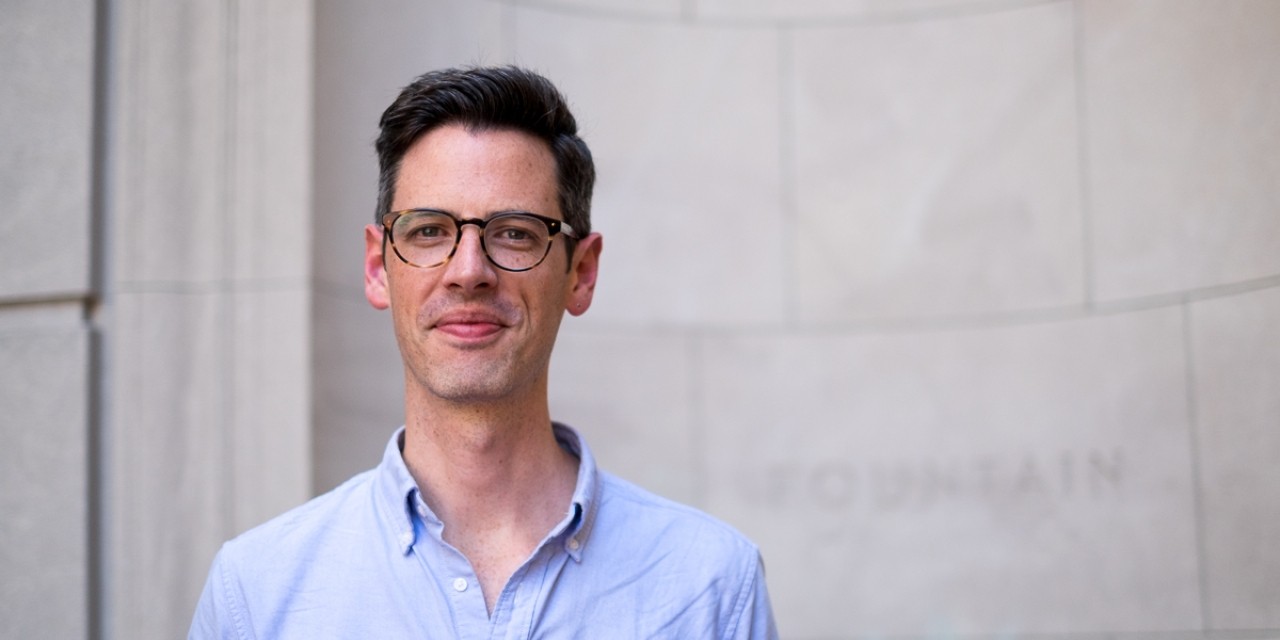Rex Barnes, PhD Candidate in Religion

Where did you grow up?
Norfolk, NE.
What drew you to your field?
Religion has always interested me. It tends to pervade culture and politics in unexpected and often shocking ways. Growing up Roman Catholic in rural Nebraska, I was quite familiar with institutional religion and doctrine. As a scholar and teacher today, however, I am far more intrigued by how different cultures intellectually and emotionally negotiate the vagaries of human life. The field of religious studies, in particular, raises compelling questions about religious traditions and practices from a host of interdisciplinary perspectives (e.g., historical, sociological, and cultural).
How would you explain your current research to someone outside of your field?
I study the history of “haunted houses” (in Latin: loca infesta) in fifteenth- and sixteenth-century German-speaking lands. The nature and power of spiritual creatures inhabiting the cosmos became a site of intense theological debate in the later Middle Ages and early modern period. Many theologians and preachers wrote copiously about how demons caused marvelous occurrences (how things disappeared, the emergence of sudden illness, why suffering persisted in human life). My dissertation examines the particular problem of how immaterial spirits were said to violently invade material locations. To this end, I trace the cultural effect that spiritual haunting had on different religious communities before and after the Protestant Reformation.
What is your favorite thing about being a student at Columbia GSAS?
The access to everything New York has to offer: museums, cultural history, scenery. At most other universities throughout the country, students would have relatively limited access to such exciting places and events.
What resources or opportunities that Columbia provides have been most valuable to you?
The library services, by far. My work in late medieval and early modern history requires examination of treatises that can be found only here. At Columbia and Union Theological Seminary, we have a robust collection of archival documents suited to the study of premodern primary sources.
Is there a common misconception about a topic in your field that you wish you could correct?
I always emphasize to my students that the so-called “Dark Ages” never existed. The moniker was applied retroactively to the medieval period by later authors as a pejorative term. Studying the history of premodern magic, witchcraft, and demonology seems always to invite that designation for the Latin Middle Ages. I frequently point out that it was only in the early modern period that the systematic persecution of witchcraft and sorcery, as such, took place.
What do you consider your greatest achievement?
Being a father. I have a one-year-old daughter named Willa, and she constantly reminds me that life is filled with wonder
Who are your favorite writers?
I am an avid fan of comic books and graphic novels. I read just about everything by Alan Moore, Mark Millar, and Neil Gaiman (including his other works, too!). For the uninitiated, I would recommend Moore’s Promethea series first—it is simply brilliant.
Who are your heroes in real life?
My mother has been a major source of support and inspiration in my life. She has accomplished and overcome so much, and it would not be an exaggeration to call her my hero.
